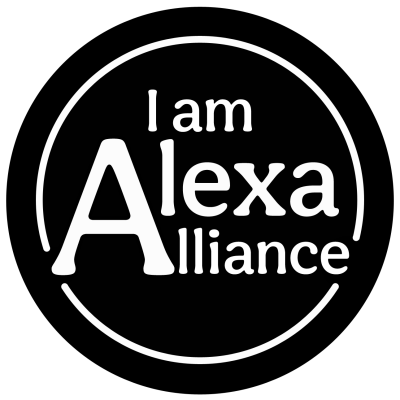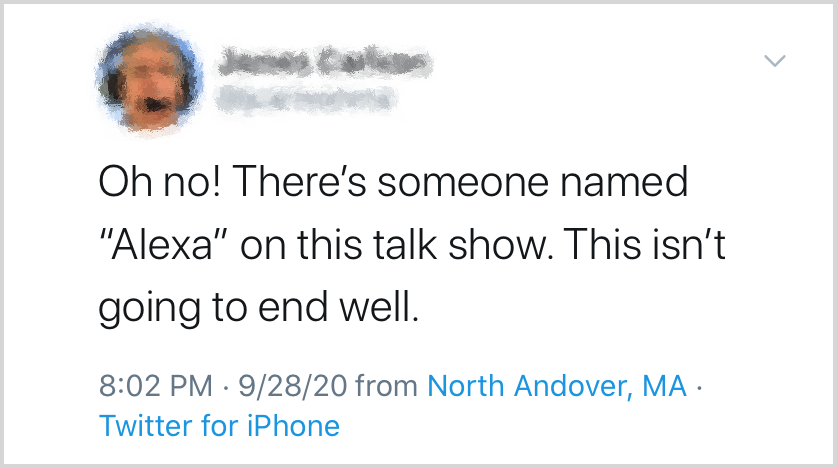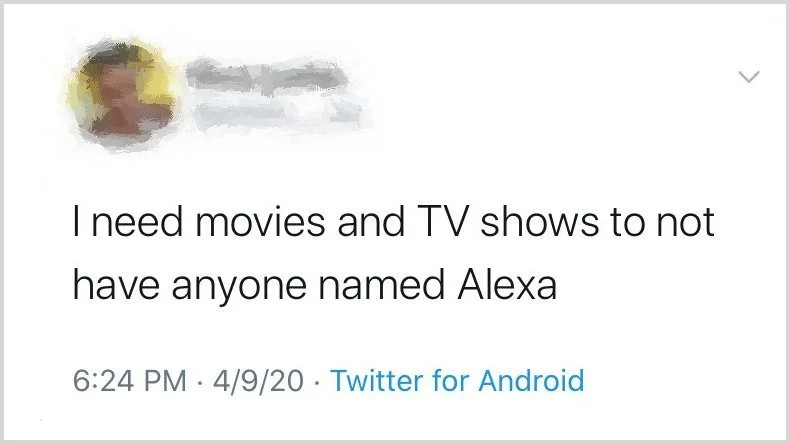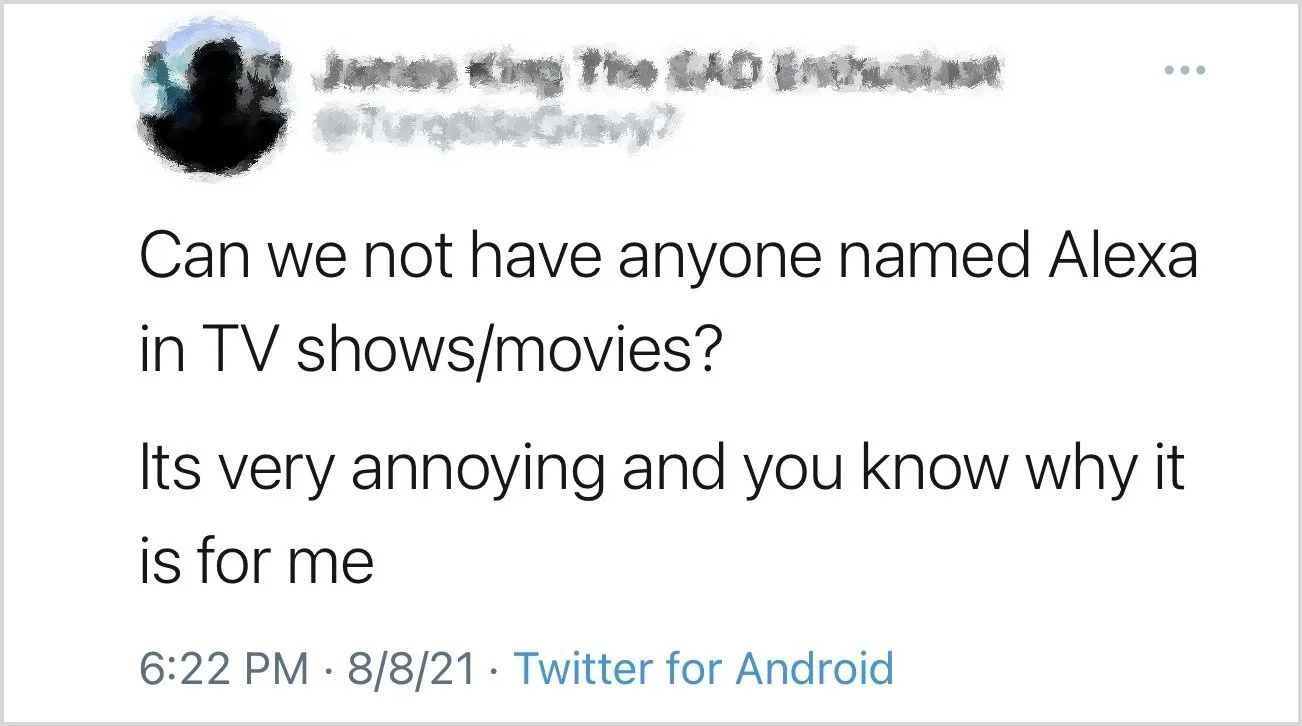The “Menace” Lurking in Media
“I need movies and TV to not have anyone named Alexa.”
As we saw with distance learning, people named Alexa (and similar) don’t need to actually be in the same physical space as a device with Amazon’s virtual assistant to accidentally activate it and cause chaos and interruptions. In fact, they don’t even need to be interacting directly with device users; accidental activation can happen whenever people named Alexa (and similar names) are included in most types of media, such as TV shows, movies, podcasts, radio shows, and even books that become audiobooks. That means it’s potentially a problem for device users when someone with a “problematic” name is a guest on a talk show, interviewed or discussed in a news story, a contestant in a game show, part of reality TV show, a host or reporter, a character in a fiction or non-fiction book, and so forth.
Users calling for a ban of real names in media:
As a result, irritated Amazon virtual assistant users are now taking to social media platforms to complain about any circumstance involving someone saying “Alexa” (and similar names) in all these forms of media. If only their indignation were directed at the actual culprit, here, instead of content producers, or the hapless people simply wanting to go by their own names. None of these annoyed users mention how it’s wrong for a company to turn a real name into a wake word and cause these outcomes, nor do they seem to grasp the implications of what it is they’re asking. The fact that people are calling for a ban on a handful of names from media because of a company’s unethical choice to use a real name for a product might seem unbelievable, but that’s precisely what’s happening. For the people named Alexa (and similar), it’s simply another unethical outcome brought on by Amazon’s terrible decision.
“I just don’t think this show is worth unplugging it.”
When Amazon’s virtual assistant users go on social media to vent about the nuisance of someone in media having the name Alexa (or similar), they often tag the offending show, or the network / streaming service that’s producing and broadcasting it, in the hopes that the people in charge of these productions might see their complaints. Some of these users even mention how this issue is a deal breaker for them as far as continuing to watch the show. Obviously, viewer ratings are very important to most media producers; viewership determines ad revenues, etc. The possibility that this feedback from viewers on social media might actually influence these producers’ future decisions regarding the inclusion of people with “problematic” names is a highly troubling reality.
Next: Workplace Woes
















































































































